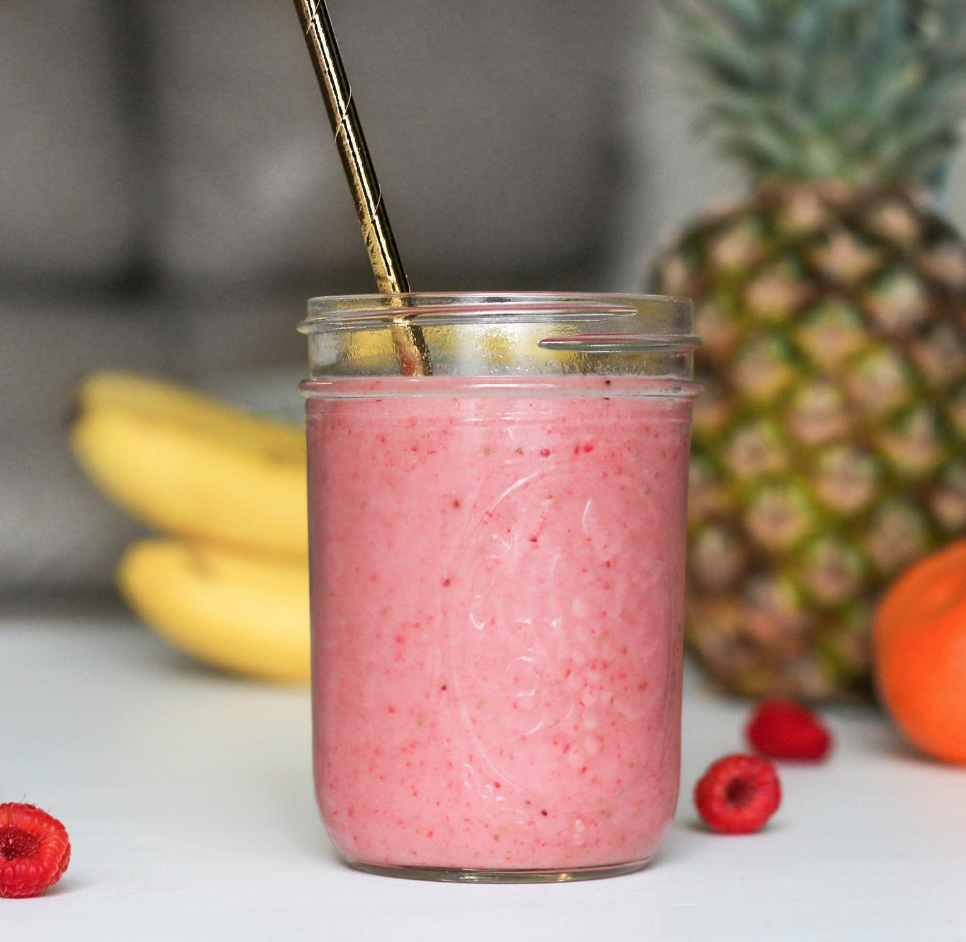The Truth Behind Protein Powders

Do we need protein powders in our diets? Are they necessary for good health? Our lead Dietitian, Lydia Worsley, helps us answer these questions below..
Protein is an essential nutrient required by every cell and tissue in the human body and makes up the majority of our muscle mass and vital organs too! It is crucial for the functioning of our immune system and production of hormones. When consumed, protein can also help us feel fuller for longer and more satisfied. So it is easy to see why there is so much interest in making sure we are consuming enough protein in our diets.
A commonly held belief is that we require protein supplementation from products such as protein powders to optimise our muscle mass/strength and benefit from exercise. So much so that billions of pounds are spent on protein powders each year!
So do we actually need protein powders for good health?
First of all, let’s think about how much protein we need
In a healthy person, the amount of protein we each require depends on a few factors:
- our weight (the bigger our body mass, the more protein we require)
- our activity & exercise levels
- what our physical goals are & what we are aiming for physically
For the general population, the recommendation for adults is a dietary intake of 0.75 grams of protein per kilogram body weight per day. For example, a 60kg person would require around 45g protein per day. If you are someone who is generally sedentary or partaking in around 150 minutes of moderate intensity per week (the minimum recommendation for health), this is a good aim.
If, however, you are more active than this, for example are exercising moderately for more than an hour per day (e.g. jogging, cycling, aerobics), you may need a little more protein to help your muscle repair. The target is 1-1.2 grams of protein per kilogram per day.
If you are strength training or doing lots of endurance athletic exercise (such as heavy weight-lifting or marathon training), you may get some benefit from upping your intake 1.2-1.4 grams of protein per kilogram per day. This is to optimise muscle recovery, mass and function. Serious strength trainers / body builders may even wish to increase to 1.7 grams of protein per kilogram per day.
When should we be eating protein?
It is important for everyone that protein is consumed at regular intervals throughout the day, with each meal and snack. For all individuals, this is useful to help keep us fuller for longer after eating and can keep appetite better controlled.
Additionally, for those who are strength or endurance training, it has also been shown that consuming food or drink containing 15-25g protein with a carbohydrate-rich food 30 minutes to 2 hours after exercise can help muscle recovery.
So where can I get protein in my diet?
Good protein sources include meat, fish, dairy foods, eggs, nuts, seeds, pulses, and tofu.
Many normal foods and drinks are great protein sources!
If you are vegan or vegetarian, you should try to eat a good variety of plant-based protein foods such as beans, seeds, nuts and soy products to ensure you are consuming enough essential amino acids (the ‘building blocks’ of protein).
Is a protein powder supplement a good idea?
…Or can we get enough protein from normal food and drink?
Studies have shown most people consume more than their recommended amount from their usual food and drink choices in meals and snacks, so therefore would not require additional supplements. For example, someone exercising moderately for more than an hour per day who weighed 60kg would need approximately 60g protein daily. This could easily be achieved by eating 200g natural yoghurt, a grilled salmon fillet and a 30g chunk of cheddar cheese!
Food / drink Protein content (grams)
120g grilled chicken breast 38
120g grilled salmon fillet 30
130g grilled rump steak 40
60g canned tuna 15
130g cooked lentils 8
100g tofu 13
30g almonds 6
20g pumpkin seeds 6
2 large eggs 14
30g reduced fat cheddar cheese 10
200ml semi skimmed milk 7
200ml light soya milk 7
200g 0% fat Greek natural yoghurt 20
Even vegetarians and vegans are typically able to meet protein requirements with some careful planning and ensuring they include a range of plant-based protein-rich foods, as described above.
What is in protein powder?
To make protein powder and similar supplements, protein is extracted from animal or plant-based sources, including cow’s milk, eggs, peas, rice, and soy. During manufacture, naturally occurring carbohydrates, fats, minerals, and fibre are often removed, while other ingredients are added such as flavourings, sweeteners, sugar and sometimes vitamins and minerals. Protein content varies but a serving of protein powder typically contains around 20g protein in 1 scoop.
When might protein powder be necessary? And what are the cons?
Protein powders may serve a purpose in an athletic individual who is very active, with high protein requirements and looking to improve muscle mass. For example, soon after a competition or intense training, high quality protein powders added to a shake can be a more convenient fuel when there is limited access to food or if someone has poor appetite after exercise.
They may also be helpful for someone with a very restrictive diet for health reasons, such as food allergy or intolerance, who is unable to consume enough protein from their food and drink. Also, in older people or those after surgery or illness, a protein powder can be a good supplement to help meet requirements.
However, it is worth remembering that focussing on a high protein intake alone is unhelpful, if your aim is to improve muscle mass as it may mean consuming inadequate carbohydrate which muscles require for energy. Also, if you consume too much protein, beyond your requirements, this will simply lead to excess weight / fat gain (not necessarily muscle, as is commonly believed!)
You might also want to check ingredients lists on protein powder labels for added sugars, sweeteners and preservatives. Try to pick a product with few additives if possible.
In summary, in most cases, you can adjust your food and drink choices to get the protein you need. Protein from your normal diet is often cheaper, tastier and contains a wider range of important nutrients! But if you struggle to meet your protein requirements, protein powder in a shake can be a convenient option. Just make sure you enjoy other real foods with it like milk, yoghurt, nut butter, fruit etc. to get a variety of nutritional benefits.
It really comes down to your lifestyle, your needs, goals and preferences!
We would suggest if you have concerns about whether you are consuming sufficient protein, that you seek advice from a qualified Registered Dietitian.
Lydia Worsley, Registered Dietitian
The Parker Practice
& More
Receive 10 free recipes to your inbox!
Sign up and we will send you 10 free recipes






